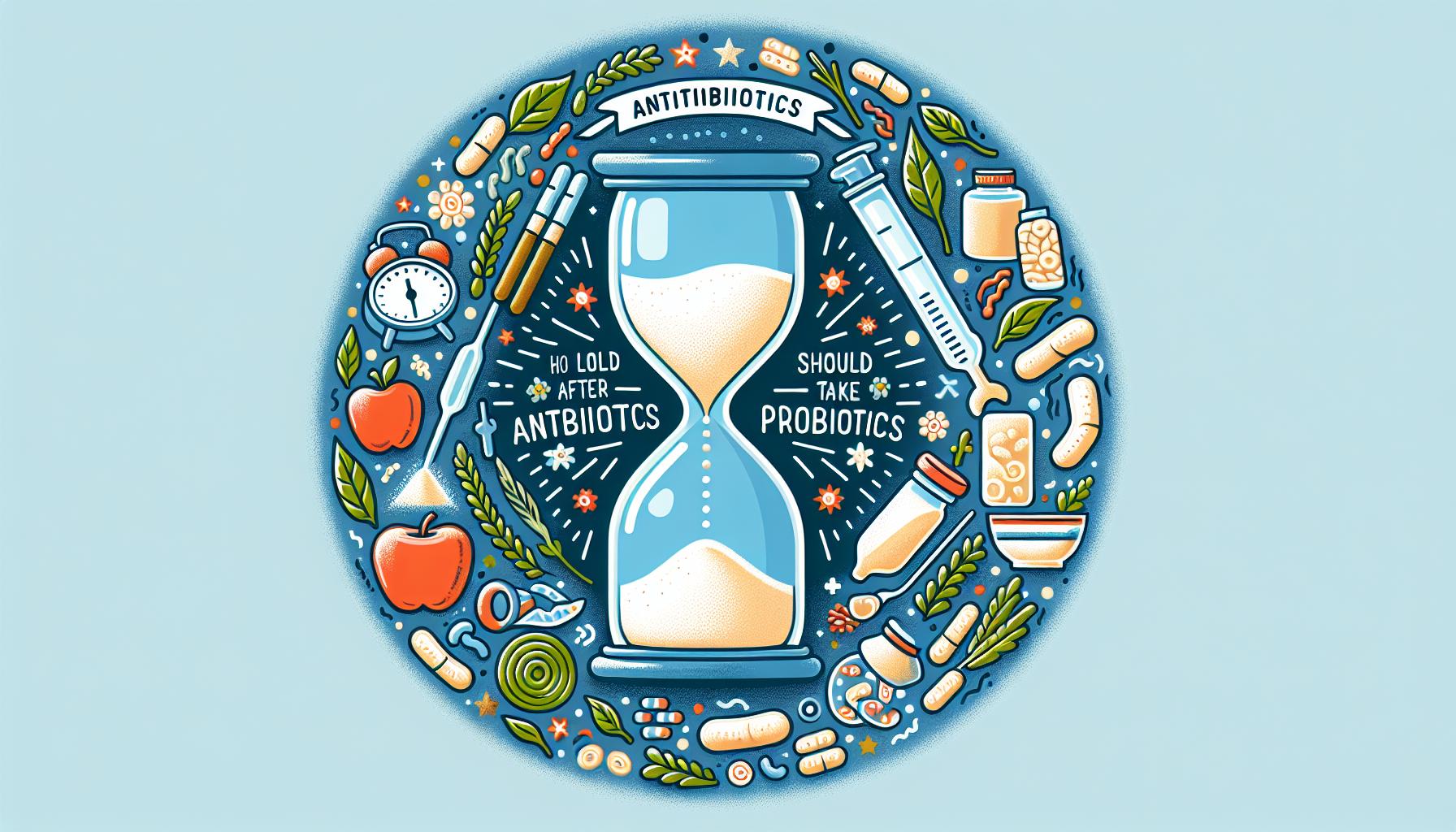
Introduction
Are you perturbed with the perpetual question – how long after antibiotics should you take probiotics? The answer might be simpler than you think. Essentially, while still taking antibiotics, you can start incorporating probiotics into your regime; however, an optimal time to do so would be 2-3 hours post taking an antibiotic. It’s beneficial to illuminate the different aspects of this intricate dance between probiotics and antibiotics, to enable you to appreciate and implement this health-boosting strategy. Let’s plunge into the riveting realm of antibiotics and probiotics, shedding light on their profound effects and interplay within our bodies.
Antibiotics and the Gut Microbiome: An Intricate Dance
Using antibiotics can be as transformative as a wildfire sweeping through a verdant forest: in the quest to quell the invader, it may also disrupt the harmony of the ecosystem. While antibiotics are formidable foes of harmful bacteria, they can also lay to waste the friendly tourists in your gut microbiome. Given the increasing awareness of these collateral damages, the call for counteractive measures has gained momentum.
The Power of Probiotics
In the anatomical arena of the gut, probiotics can be guard dogs, vigilantly counteracting the temporary tumult caused by antibiotics. These benevolent bacteria bolster the defense of your gut, assisting in the restoration of gut equilibrium.
When Should You Savour Probiotics After Antibiotics
While being on the antibiotic-centered battlefield, starting the probiotic regiment might seem like a sensible strategy, however, an ideal time would be a few hours after ingesting an antibiotic. Why you ask? Simply put, this allows the antibiotic to work its magic and subsequent consumption of probiotics aids in replenishing the gut flora, setting the stage for a healthier gut resume.
Probiotic Timing: It’s a Matter of Hours
The timing of your probiotic ingestion can be as crucial as a ticking time bomb. A general rule of thumb is to allow a window of 2-3 hours between antibiotic and probiotic consumption. This strategy optimizes the benefits of both without suffering a loss in their respective efficacy.
Probiotics Post Antibiotics: A Marathon, Not a Sprint
The journey to restore the gut health post the antibiotic regime ain’t a sprint but a marathon. Consuming probiotics for a few weeks after your course of antibiotics can be instrumental in the rehabilitation of your gut microbiome.
Patience and Persistence: A Probiotic Promise
In the pursuit of a healthy gut, patience is a virtue and consistency is the key. Continual probiotic consumption well after your antibiotic course will pay dividends in a revitalized and resilient gut ecosystem.
Conclusion
In the grand scheme of your health, incorporating probiotics during and after your antibiotic course truly is more than just a beneficial breadcrumb—it’s a navigational compass guiding you towards a healthier gut biome. While antibiotics wipe out the harmful and beneficial bacteria, the probiotics provide reinforcement, restoring balance to your gut. Remember, it’s not just about popping probiotics post antibiotics but also about persistence in this wellness journey.
Frequently Asked Questions
1. Why is it necessary to take probiotics after antibiotics?
Taking probiotics after antibiotics aids in replenishing the beneficial gut bacteria that may have been disrupted during the antibiotic course.
2. Can you take probiotics and antibiotics together?
Yes, but it is recommended to allow a span of few hours between their intake to maximize the effectiveness of both.
3. What type of probiotics should I take post-antibiotics?
High quality, multi-strain probiotics are recommended after antibiotic therapy. Your healthcare provider can provide an appropriate recommendation.
4. How long should I continue taking probiotics after antibiotics?
Persistence is key. Continue taking probiotics for several weeks post the antibiotic course for maximum benefits.
5. Can probiotics lessen antibiotic side effects?
Yes, consuming probiotics may help mitigate some side effects associated with antibiotics, such as diarrhea.

